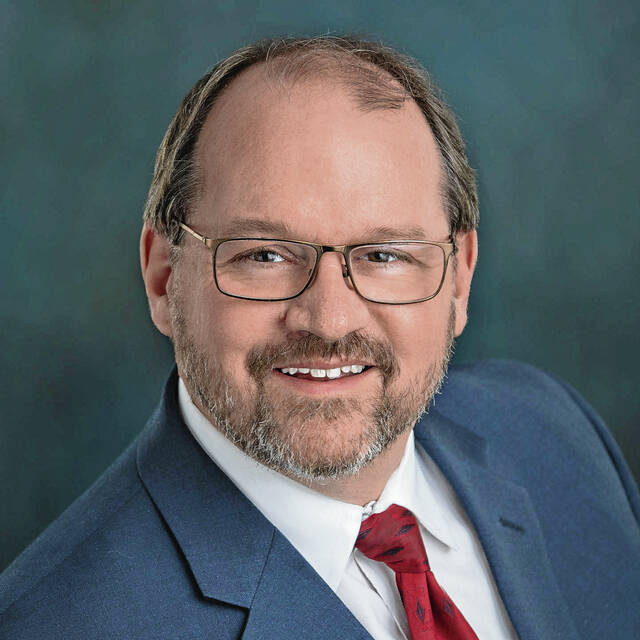The end may be in sight, but we are not there yet. As we approach the second anniversary of the arrival of coronavirus in Indiana, it feels as if most people have already moved on. Except those that work in health care and the patients they have cared for who had life-threatening infections. COVID-19 is still very much a part of their life.
I am sad to report that since the beginning of the pandemic, nearly 3,000 county residents have visited an ER because of their infection. About 1,100 have been hospitalized, and more than 600 have been admitted to ICUs. Tragically, more than 200 of our friends, family and neighbors in the county have died from their infections. Even more tragically, we are adding many more to each of these counts each day. Yes, it really is that bad.
You may have heard the Omicron variant results in less-severe disease, and our experience at Hancock Regional Hospital would support this. Testing volumes are at their highest levels, but the vast majority appear to have mild symptoms, especially those who have been vaccinated and boosted. The problem now is purely one of numbers. When 300 people per day test positive for COVID in our county, even a small percentage needing hospital care are enough to overwhelm the resources we have available, the most important of which is our people.
As COVID enters its third year, many health-care professions are experiencing shortages, especially nursing. The last few years have been the most challenging of their lives mentally, physically, and spiritually. “Burn-out” used to be the phrase to describe it. Today it is pure exhaustion and moral injury. There are only so many times a person at the bedside can helplessly watch a patient die, knowing there is nothing more that can be done. It is especially upsetting when that disease in many cases could have been so easily prevented. Even today, 85%+ of COVID patients in our hospital are unvaccinated.
You may recall that the very best treatments for a person infected with COVID are monoclonal antibodies (mAB). At Hancock Health we have provided this treatment to more than 3,000 patients over the last year (one of the busiest mAB infusion programs in the state). This treatment has kept hundreds of patients out of the hospital and halted disease progression in many more who were hospitalized. Unfortunately, the world is down to just a few mAB treatments that work against the new variant, and these are in very short supply. There are new oral medications that work well against COVID, but these are in even shorter supply.
The bottom line is that the number of people needing hospital care for COVID has risen dramatically; the number of staff available to treat them has declined; and the treatments available are in very short supply.
At this point you might expect me to launch into a plea for vaccination. But I won’t. Most people have already made their decision at this point. If you have been vaccinated, I will recommend that you take the opportunity to get the booster. It may not prevent infection (Omicron is good at getting past it), but it does an amazing job of keeping you from becoming sick enough to need the hospital.
My only plea at this point is that you understand that hospitals throughout central Indiana are overwhelmed, including ours. Elective surgeries have been postponed. Emergency departments are full (often diverting ambulances to other ERs), and wait times are very long. Frequently, we are not able to transfer patients to the large hospitals in Indianapolis for tertiary care we do not provide at Hancock Regional; they are all full and have very long waiting lists as well. Laboratory and imaging services have long waiting lists. Physician office schedules are packed. And we are pulling people out of many departments to act as helping hands for our emergency room and inpatient staff. Please be patient with us.
Finally, if you know someone who works in health care, especially in a hospital, send them a note letting them know you care. Most importantly, keep us in your prayers; we have never needed them more than now.



